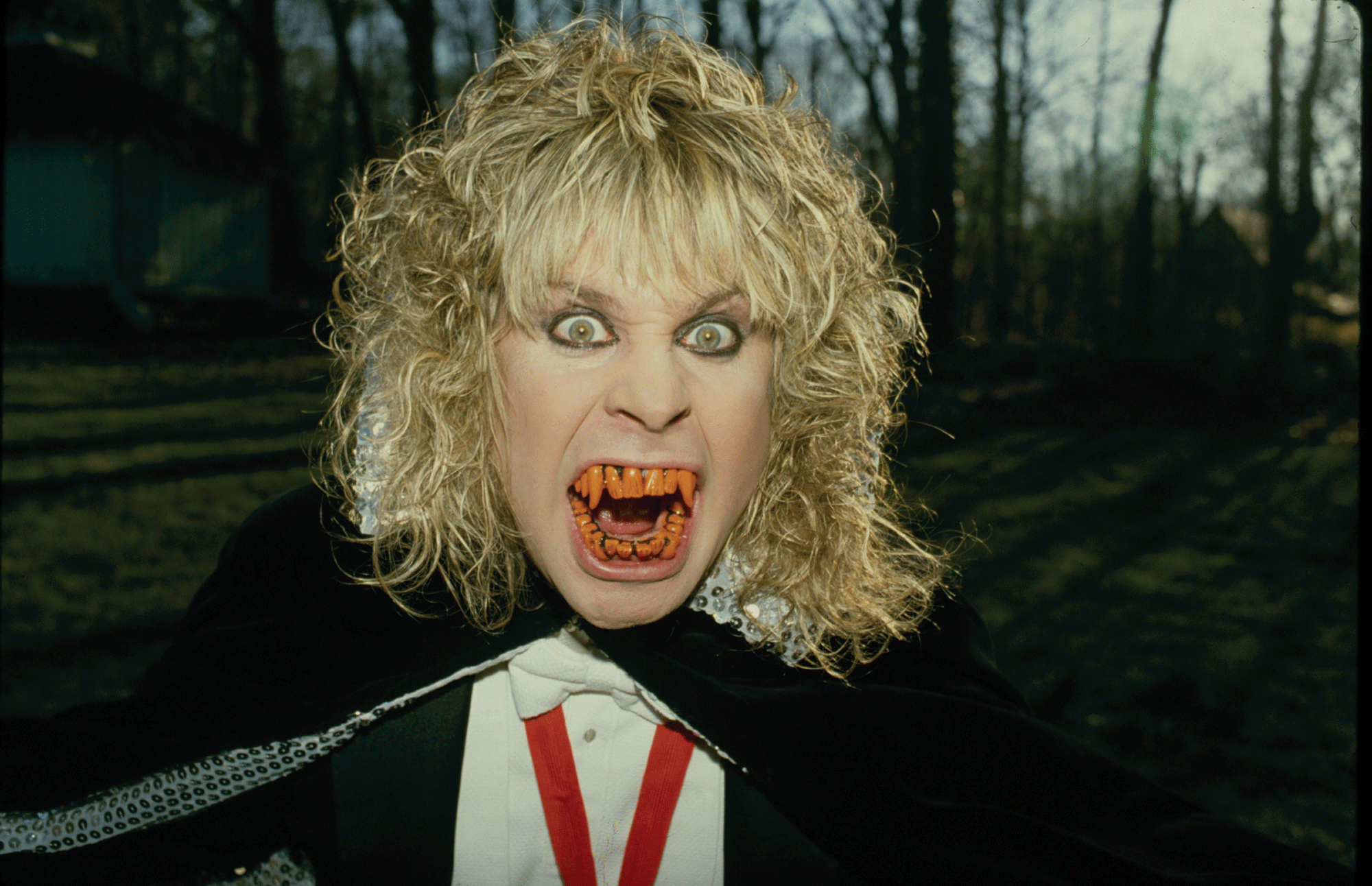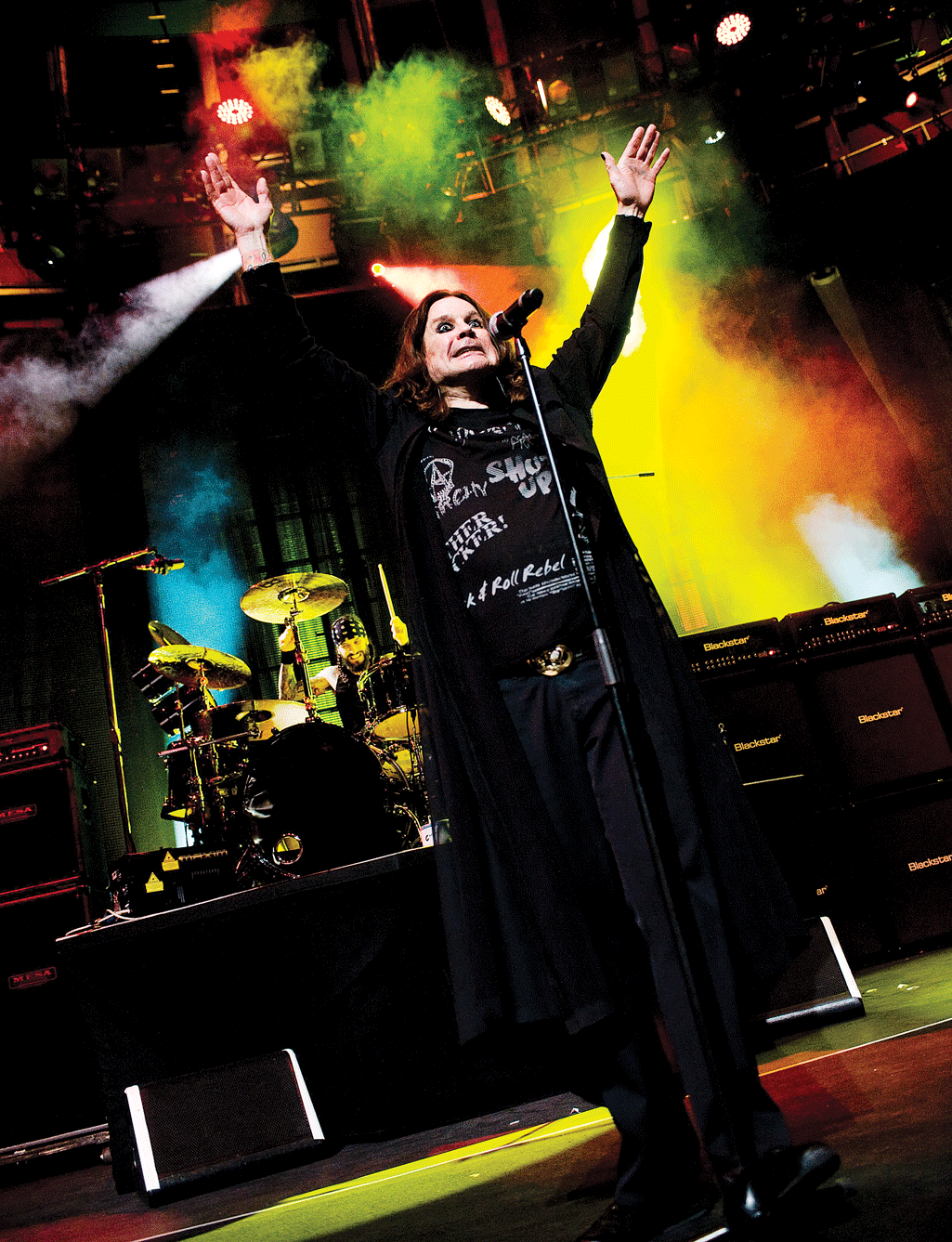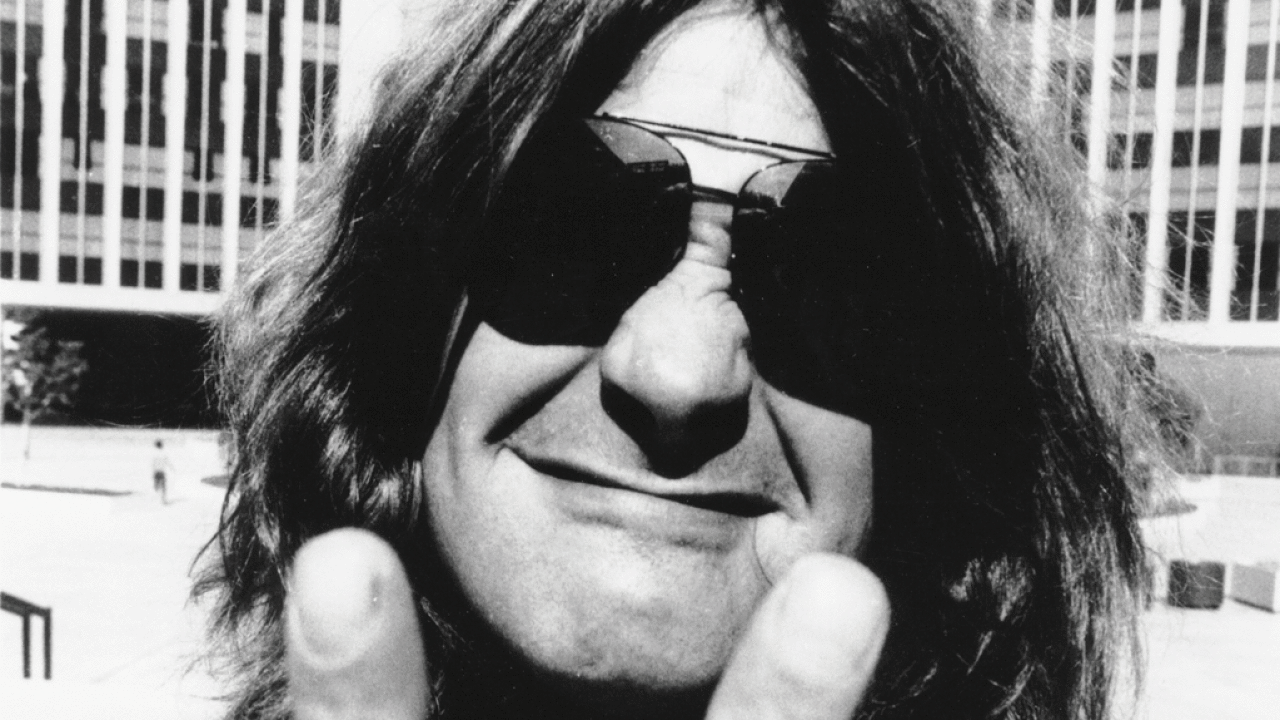There was a time when The Rainbow Bar and Grill on LA’s fabled Sunset Boulevard was the epicentre of Ozzy Osbourne’s over-indulgence, but these days the singer’s visits are of a somewhat different nature.
For Ozzy, the Sunset Strip bar is no longer a setting for debauched behaviour, but rather the somewhat ironic setting for his morning Alcoholics Anonymous meeting, as the first item on his daily itinerary. Upon completing that meeting, he will drive back to his West Hollywood home and change into his workout clothes for a 90-minute session at his home gym, listening to Pandora playlists as he pounds the treadmill. And only when this daily routine is completed is he ready to face the world as Ozzy: Prince Of Darkness.
Thirty-five years ago, Ozzy Osbourne’s daily routine in Los Angeles was rather different. In the summer of 1979, after being fired from Black Sabbath, the singer’s only desire was to embrace oblivion. Each morning he would awake to the sound of his coke dealer pounding on the door of the tiny apartment in the Le Parc complex on North West Knoll Drive in which he had been sequestered after being kicked out of Sabbath’s LA mansion. After rubbing the sleep from his eyes and some white powder into his gums, Ozzy would make a call to Gelson’s supermarket on Sunset, and ask for a case of beer and a bottle of spirits to be delivered to his temporary home. And then, with the curtains drawn and the phone off the hook, the singer would set about getting completely, utterly wasted.
“I just thought ‘This is the end now’,” Ozzy recalls. “I thought ‘What the fuck am I going to do now?’ And my one idea was ‘I’ll just get fucked up ‘til I run out of cash and then I’ll go home to England.’ So that’s what I did. I was getting fucked up every fucking day, for three months. I was in total isolation. And I was tired, pissed [off] and tired.”

To this day, no-one involved can pin-point the exact moment Sabbath lost patience with their errant singer, though Geezer Butler’s recollection is that the final straw was the band arriving at their rehearsal studio to find Ozzy lying unconscious in a puddle of his own piss. By his own admission, Ozzy’s drug and alcohol abuse was “escalating” at the time, and he was rapidly losing interest in the band, a state of affairs that didn’t go unnoticed, unbeknown to Ozzy himself.
“It never really occurred to me until fairly recently, when I read a bit of Tony Iommi’s book, that they all knew I wasn’t really into it anymore,” he admits. “We were all doing lots of drugs and alcohol just to get through the fucking day, and the communication had really broken down. We started off as a local band that did great, and then we realised we were getting ripped off, and having to pay tax bills and all that, and I just thought ‘This ain’t rock ‘n’ roll anymore.’ When I got kicked out my denial was such that I was like ‘How dare they fire me?’ Looking back, though, it was a godsend.”
With an infamous intervention and much encouragement from his new manager and soon-to-be partner, Sharon Arden, Ozzy began open auditions for a new band – and, after a time, it was a certain 23 year old guitar prodigy that made the biggest impression.
Ozzy and Randy Rhoads hit it off spectacularly, and the pair began songwriting sessions almost immediately, decamping (at Sharon’s insistence) from LA to Ozzy’s family home, Bullrush Cottage in Ranton, Staffordshire. The first fruit of their partnership was the Beatles-esque ballad Goodbye To Romance: Suicide Solution, Crazy Train, Mr Crowley and I Don’t Know were all penned in the next few weeks.
“The earliest days of any band I’ve been in are always the most productive, because you just write,” says Ozzy. “We had no other commitments. And Randy was brilliant, he was the first guy in my life who was like ‘Try doing this here, and this here…’ When we did Crazy Train and Suicide Solution I knew we had something good. It was a magical time.”
Rejecting Sharon’s suggestion that he should call his new band The Son of Sabbath (“I went ‘Fuck off!’”), Ozzy embarked on his first UK tour as a solo artist, backed by Rhoads, bassist Bob Daisley and drummer Lee Kerslake. Ozzy’s first solo album, the classic _Blizzard
Of Ozz_, was released at the same time.
“The pressure was on me, because it was my name on the tickets,” Ozzy notes. “If it failed, all the other band members could go and get other jobs, in fucking Uriah Heep or Black Sabbath or someone, but not me. I had to prove myself. To be honest it was something of a rock’n’roll experiment. I had no idea that it would do what it did.”
Blizzard of Ozz would go on to sell six million copies worldwide.
- Black Sabbath Quiz
- The story behind Black Sabbath's Master Of Reality
- The Top 10 Worst Black Sabbath Songs Ever
- The 10 best Black Sabbath songs from their final tour, by Adam Wakeman

Of course, while Ozzy’s second solo album, 1981’s Diary Of A Madman, was another triumph, propelling the band to arena staus in the US, the tragic and frightfully premature death of Randy from an aircrash the following year threatened to send proceedings spiraling off course.
“My life at the time was a rollercoaster,” Ozzy says. “My father had passed away, then I got fired from Sabbath, then I met Randy Rhoads, then I got divorced from my wife (at the time), and then Randy Rhoads got killed. I remember getting off the bus and just saying, ‘I can’t do this anymore, because it’s going up and fucking down all the time.’ And Sharon said ‘Don’t be so fucking stupid, Randy wouldn’t like that.’ And we ended up doing Madison Square Garden without Randy, with Bernie Torme on guitar. And for what it’s worth, he saved my life, because if I had not got on that stage with him I don’t think I’d have ever got on a stage again.”
By 1986, when he headlined the Monsters of Rock festival at Donington for the first time, Ozzy was arguably the biggest name in metal. And he hasn’t looked back since.
“My ego loved it,” Ozzy laughs. “It was like ‘Fuck you, I told you I was right!’ It was fucking unbelievable, and it kinda shook me off my feet for a bit. I was an alcoholic and I’d been vindicated by success so for a while I thought my shit didn’t stink.”
Asked if his solo success served as a two-fingered salute to his old bandmates, Ozzy laughs and says: “Well, success is the best revenge.”
“But no,” he says, more seriously. “I was bitter for a time, but it passed. But it’s like a divorce, you don’t want to know how well your ex-partner is doing. I never saw one of their shows, and never heard one of the albums they made without me. And I still haven’t, I don’t want to. Why would I? I’m sure they weren’t playing my fucking records at their gigs!”
In 2014, of course, all is well between the formerly estranged Sabbath bandmates, so much so that in 2015 Ozzy will rejoin Tony Iommi and Geezer Butler to record one final Black Sabbath album with producer Rick Rubin. In the meantime, his career-spanning Memoirs Of A Madman compilation serves as a great reminder of just what a fabulous entertainer Ozzy the solo artist has been.
“The reason I’ve put this album out is that people have been ringing the office and saying, ‘Is Ozzy’s solo career over?’ This is just to say ‘Hey, I’m still here, still active, and I’m still going to carry on if people want to see me.’ I’ve got a writing team in LA that I write with when I have a free week here and there, and I’ve already written three very interesting things. But I’m not going to rush another solo album out, it has to be good. It has to be great, actually.”
These are clearly good times to be Ozzy Osbourne. Asked now if he has any regrets
over past mistakes, and those dark days of 35 years ago, Ozzy laughs dryly, and says “What’s the point?”
“I wanted to be a solo artist because the band situation had not worked out for me,” he says quietly. “But, y’know, sometimes you have to fall down to get back up again.”
The Black Sabbath Lyrics Quiz: can you match the line to the song?
Why Black Sabbath's Paranoid is the Quintessential Heavy Metal Album
Black Sabbath's Geezer Butler on knives, vegan food and wanking bandmates


